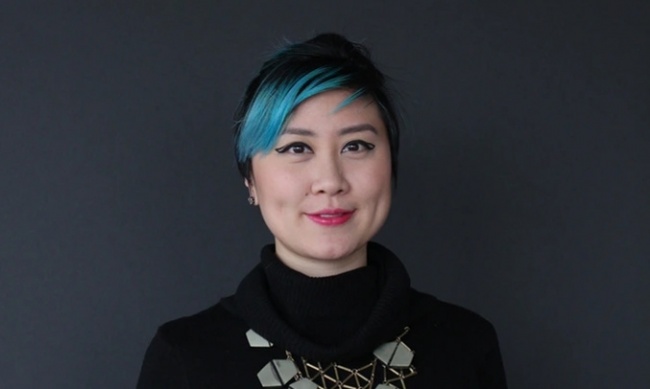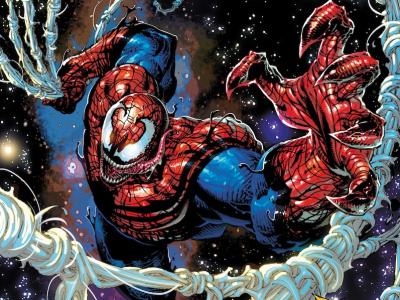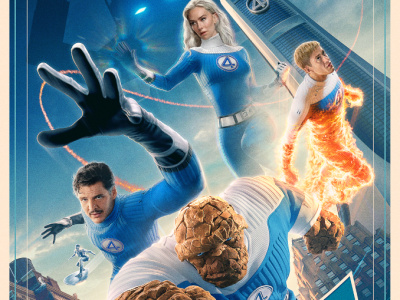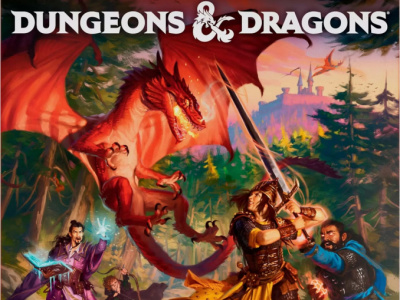I interviewed Camilla Zhang, Kickstarter's comics outreach lead, on the occasion of Kickstarter announcing plans to release a comics anthology. In Part Two, below, Zhang provided her perspective on Kickstarter's impact on publishing. In Part One, she talks about Kickstarter’s anthology project. Our conversation has been edited for length and clarity.
Rob Salkowitz: Kickstarter has had a major role in comics publishing over the past 10 years. How would you assess the impact, from the company’s perspective?
Zhang: I think it’s been increasing year by year. We’ve seen incredible growth in the comics category year after year. 2018 saw 1,457 successful comics projects launched. 2019 saw 1,598 - two projects shy of 1600.
We have 768,000 backers in the category. We’re close to $100 million all time raised – not there yet, but close. Diamond hasn’t put out how many times Marvel or DC puts out a year, but the last public record of the number of titles periodicals, 2017… in terms of number of projects that come through, Kickstarter is more than the number of periodicals Marvel published in 2017.
I know [comics in North America] is a $1 billion market. $16 million doesn’t seem like a lot. But when you think about how many projects are getting recognition behind that $16 million, that speaks for itself.
I’m sure a lot of smaller publishers would be very happy with $16M. What do you need to do to keep that momentum going?
To ensure a healthy ecosystem, we want to raise more awareness among comics readers [about the breadth and depth of Kickstarter comic projects]. For example, readers from diverse background don’t always see themselves in stories. Same with creators.
Why is Kickstarter so appealing for diverse creators and their fans?
Maybe they’ve been rejected by publishers, who can be a little shortsighted. Maybe they hear stuff like "we already have our diverse book for the year. We already have a Haitian character." When I was pitching my own graphic novel to a publisher, I got a very nice rejection, saying they already had a gender-queer shapeshifter! It’s not a zero-sum game. There are all kinds of stories that want to be told.
Big publishers think diversity is a market trend. It isn’t a checkbox and shouldn’t be seen that way. I think marginalized creators come to Kickstarter to have complete autonomy over their projects. They want to see it made, regardless. They come to Kickstarter to do that.
I personally have made it my mission to uplift projects by marginalized creators. I want to give people the chance to really be allies, to really step up and support marginalized creators. Here is your chance to put your money where your mouth is.
How important is the comics segment to Kickstarter as a percentage of projects run through the site?
It’s not as significant as you’d think, because the biggest are games and design, but it’s pretty significant. We saw $105.88 million pledged [through] last year, but that includes projects that didn’t fund.
How has comics been trending over the last few years? Is it still a growth area or holding steady?
It’s definitely a fast-growing category. What makes its stand out is the high success rate - one of the highest. 58.56%, and it grows every year.
That’s why people love comics on Kickstarter. The community has been organic. The Kickstarter comics category has been successful for a long time. I’m just here to bring it to new and different heights. There are so many avenues that Kickstarter creators can do down that would not be available through the average public channels. Experimental comics come through us, things don’t match up to what’s traditionally published. It’s where creators can stretch the medium.
For example, Projects that Defy Genre, or Experimental Comics [categories on the comics Kickstarter home page]. Matt Kindt brought Mind MGMT Vinyl to us because Dark Horse didn’t know what to do with it.
How has Kickstarter changed the conversation between creators and publishers?
It gives creators a way to prove their market potential. Did you know Check Please! by Ngozi Ukazu was Kickstarted? It’s on First Second now. When Ngozi went to Macmillan, she was able to advocate for herself in terms of her contract. Creators don’t have to accept what’s given to them. They can say, "I’ve got the numbers here, I deserve a better contract, these rights."
What are the top factors in a successful comics Kickstarter?
I don’t have stats to back this up, but I’d say the number one thing is have a very clear log line (subtitle). That’s your opportunity to get people interested in their project. So many people have vague log lines. Important to creators just starting out, who don’t have a strong fan base. Be clear about what backer can expect.
Second, have a very impactful and compelling project page image.
Then, think about the order of your project page info. Talk about the story, then about who you are and why you’re doing it. Ultimately, you’ll sometimes lose people if you take too long to introduce the project. People have short attention spans. Be clear and concise.
Try to get at least 25 backers. The stat for projects with 25+ backers is an 82% success rate. If you have 25 or more, you’ve put the effort into building a mailing list. You don’t need 10K followers, though it helps. If you have engaged followers, that’s what matters. They’ll come and back your project.
I often tell artists, sometimes email is more effective than social media. Have a mailing list for people to sign up at your table. Fans may not buy your book, right away but they might support you down the road.
What are the top mistakes creators make?
Overestimating or underestimating your goal. It’s hard. People just starting out might not have faith in getting a big amount, but it’s better to ask for more than you think you’ll need than less. You have a responsibility to their backers. It’s a balancing act. The only way to know what number you can hit is to know your position in the community: how engaged you are, how engaged your fans are.
How about projects that fund but don’t get fulfilled? Do you have any stats on that? What are the safeguards?
I think we do have numbers on that, but not immediately available. In terms of commitments, the community is so engaged, we look out for each other. There are people who try to get around the rules, but it gets out. For better or worse, the comics community is small and word travels fast. [Note: around 5% of funded comic projects fail to fulfill, according to information provided by Kickstarter after the intervew.]
Where do you see Kickstarter for comics going in the next decade?
Our culture has a big problem with monopoly and expectations, in terms of how fast people want things to turn around. Amazon, streaming services… everything at your fingertips. Everything available by drone or two-hour delivery.
Amazon, for example, has made books more accessible through retail delivery and Kindle. It’s also taken a lot of power away, even from big publishers, in the name of convenience. The further we go down the rabbit hole of convenience, the harder it is to appreciate the creative process and support truly independent artists.
Kickstarter is not a store. You’re not getting a product in the next seven business days. You’ll get it in a year. Creators can provide updates and involve you in the creative journey. As fans, we get excited about behind the scenes videos, interviews with our favorite writers, about what went into the process. I hope people get a more complete understanding how much thought goes into each new page layout, each revision of dialogue. That’s what Kickstarter is really great at. That can be more rewarding than the physical product.
My vision for Kickstarter and society is to stop looking up toward the giants, and start looking at each other, at eye level. All these media conglomerates – they put out amazing works, but at the same time, we’re never going to get diverse and marginalized creators through the door if we don’t support them where they are now. A lot of them aren’t friends with producers, they don’t move to LA, they’re just hustling. If we neglect the people around us and just throw money at conglomerates that don’t really need our money, we’ll lose a lot of amazing talent and make shortsighted decisions that don’t have the community’s benefit in mind.
To me, the solution to capitalism and overconsumption is… don’t overconsume. Don’t give in to IP machines. I’d love to inspire a slower mode of consumption, get in on the creative process of a work rather than just the finished process. There’s a value to the journey, not just the destination.
Click here to go back to Part 1.
The opinions expressed in this column are solely those of the writer, and do not necessarily reflect the views of the editorial staff of ICv2.com.
Rob Salkowitz (@robsalk) is the author of Comic-Con and the Business of Pop Culture.

Column by Rob Salkowitz
Posted by Rob Salkowitz on January 29, 2020 @ 5:26 am CT
MORE COMICS
'Venom' #252 to Feature Backup Story with New Suit, Plus New Story by DeFalco and Frenz
August 4, 2025
Venom #252 will feature a backup story about Venom’s new suit as well as a backup story by Tom DeFalco and Ron Frenz, the creators of the symbiote suit.
Showbiz Round-Up
August 4, 2025
The post-SDCC showbiz news is still spicy a week after the show's conclusion. It's time for another round-up!
MORE COLUMNS
Column by Scott Thorne
August 4, 2025
This week, Scott Thorne addresses some comments on last week's column and the right price for starter products.
Column by Scott Thorne
July 28, 2025
This week, columnist Scott Thorne comments on the Edge of Eternities prerelease and on Magic: The Gathering news from the Hasbro earnings report.









